基本介紹
生平簡介
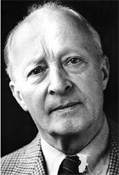
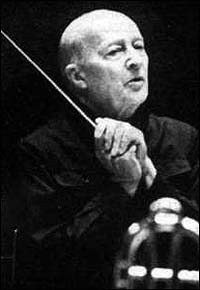
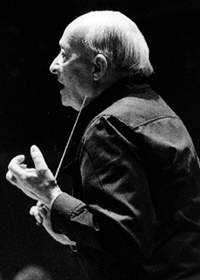
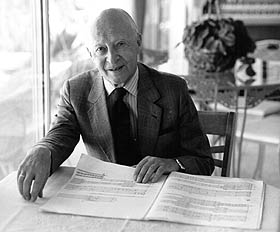
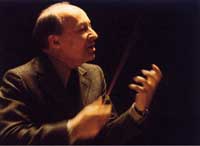
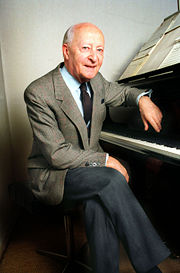
年代表
1913 | 1月25日魯托斯拉夫斯基出生於華沙。 |
1915 | 全家為了第一次世界大戰而避難,搬遷到莫斯科。 |
1918 | 五歲時去探望父親Jozef,他的父親因為反革命運動而被判入獄,監禁在莫斯科監獄,就在探望之後幾天, Jozef被執行死刑。最後的會面讓敏感的魯托斯拉夫斯基留下了難以抹滅的印象。這也影響他以後的作品;戰後全家搬回了華沙。 |
1919 | 魯托斯拉夫斯基開始學習鋼琴,由他的母親啟蒙,之後在華沙由海倫娜 霍夫曼諾娃(Helena Hoffmanowa)指導。 |
1920 | 他的母親決定回到Drozdowo,魯托斯拉夫斯基在這裡繼續跟隨當第一位音樂老師學習音樂。 |
1924 | 進入了華沙最好的中學Stefan Batory School就讀,跟隨大鋼琴家和教育家的Jozef Smidowicz學習鋼琴,他第一次聽到Szymanowski的音樂,留下了深刻的印象。 |
1926 | 跟隨Jozef Joachin的學生Lidia Kitowa學習小提琴,經過8年時間琢磨小提琴技巧,這方面的知識對他往後作曲助益良多。 |
1927 | 進入華沙音樂院就讀。 |
1928 | 15歲,終止學習音樂,轉而向Witold Maliszewski學習理論作曲。 |
1930 | 第一部公開發表鋼琴作品-女妖奇美拉之舞(Dance of the Chimera)。 |
1931 | 通過大學入學考試,註冊華沙大學的數學系。 |
1932 | 回到華沙音樂院,追隨室內樂大師Jerzy Lefeld學習鋼琴,並且和Witold Maliszewski學習作曲,一年後放棄了數學課程。 |
1933 | 第一次管弦樂作品公開演出,有華沙愛樂管弦樂團演奏。 |
1934 | 完成第一部大型作品-鋼琴奏鳴曲。 |
1935 | 在里加(Riga)和作曲家席馬諾夫斯基Karol Szymanowski相遇。 |
1936 | 完成華沙音樂院的鋼琴課程。 |
1937 | 取得作曲文憑。畢業製作是Requiem aeternam(進堂詠)和Lacrimosa(以淚洗面) |
1938 | 完成了兩年前開始的交響變奏曲。 |
1939 | 前往巴黎向著名的音樂教育家Nadia Boulanger學習。 因為二次世界大戰爆發, 魯托斯拉夫斯基被德軍逮捕監禁, 但八天後即越獄成功。 |
1939-45 | 大戰期間編寫了50部對位法練習曲和音樂著作。 |
1946 | 10/26 和Maria Danuta Bogusławska結婚。 |
1947-48 | Under the pseudonym "Derwid", Lutoslawski writes utility music: for radio, theatre, film as well as popular music. Apart from songs for children to listen to, he writes "childish songs" for them to sing. In composing this kind of music, he is motivated by financial considerations. He receives the Warsaw City Prize. The premiere of his Symphony No. 1is held on 6 April. |
1949 | The authorities demand that artists commit themselves to building socialism in Poland, by composing works that are as easy as possible - songs for a mass audience. Refusal to write them was recognized as opposition to the people's government and had serious consequences. Such rebellion condemned musicians to financial poverty and artistic oblivion. Performed at the inauguration of the Fourth Chopin Competition, Symphony No. 1is hailed a "formalist" piece and its performances are forbidden. |
1949-58 | Lutoslawski's original musical language crystallizes in this period - writing for himself, the composer creates his unique, individual system of composition. He makes his money from works based on folklore. The premiere of the Overture for Stringstakes place in Prague on 9 November 1949. |
1951 | 20 April marks the first performance of the Little Suitefor chamber orchestra. The work is based on four folk melodies from the Rzeszow region. The premiere performance of the Silesian Triptych, a work based on the folklore of Silesia, takes place in December. |
1952 | 唯一一次指揮別人的作品 - 指揮波蘭無線交響樂團(Polish Radio Great Symphony Orchestra)演出海頓交響曲NO.92。 |
1954 | 完成「管弦樂協奏曲」(Concerto for Orchestra) |
1955 | 舞蹈前奏曲首演。 |
1958 | 葬禮音樂首演,開啟了魯托斯拉夫斯基的國際地位。 |
1959 | 根據波蘭作家Kazimiera Illakowiczowna的文章所寫的五首歌首演,這是魯托斯拉夫斯基第一部用新音樂語言所編寫的作品。 葬禮音樂獲得巴黎國際作曲家論壇首獎。 獲波蘭作曲家協會頒獎。 |
1960 | By accident, he hears John Cage's Piano Concerto, and the idea of applying chance in music plays a key role in the process of shaping Lutoslawski's composing technique. His "controlled aleatorism" is born. |
1961 | The premiere in Venice of the first work based on the aleatoric technique - Jeux vÉnitiens. Lutoslawski is hailed as an avant-garde artist. He will be recognized as a classic 10 years later. |
1962 | Lutoslawski receives the first-degree Artistic Award of the Minister of Culture and Art. In May, the composer is a success once again at the International Composers' Tribune, where his Jeux vÉnitiens, written using the new technique called controlled aleatorism, wins first place. |
1963 | The artist receives first prize from the International Music Council and the Gesellschaft der Musikfreunde in Vienna. |
1964 | The composer receives more awards: a first-degree State Prize, the Serge Koussevitzky International Recording Award, and again places first at the International Composers' Tribune in Paris for his Trois Poemes d'Henri Michaux. |
1965 | The String Quartetpremieres in Stockholm on 12 March - this is Lutoslawski's first chamber work written using the controlled aleatorism technique. The premiere of Paroles TissÉestakes place in Aldeburgh on 20 June. |
1966 | Lutoslawski is awarded the Alfred Jurzykowski Foundation Prize in New York. This prize was founded in 1964 in order to promote writers, artists and scientists of Polish descent, regardless of their place of residence. By 1998, when the programme was closed, 451 Polish people had received the prize. |
1967 | Lutoslawski receives more prizes: the Gottfried-von-Herder-Preis in Vienna, and the Leonie Sonning Music Prize in Copenhagen. On 9 June he conducts his Symphony No. 2in Katowice. The composer's mother Maria dies in Warsaw on 17 October. |
1968 | Yet another success for Lutoslawski at the International Composers' Tribune in Paris: his Symphony No. 2wins first place. This is also the year of the premiere of an important work in his output - Livre pour orchestre. |
1970 | 10/14 大提琴協奏曲在倫敦首演。 |
1971 | 第一次獲頒榮譽博士學位-克里斯蘭音樂學院(Cleveland Institute of Music), 在巴黎獲得三項獎項。 |
1972 | 前奏曲與賦格在奧地利Graz首演。 |
1973 | 受頒華沙大學榮譽博士、波蘭作曲家獎、赫爾辛基西貝流士獎。 |
1974 | 獲芝加哥西北大學頒發榮譽博士學位,並受託編寫作品 - 在1983年玩勝的交響曲第三號。 |
1975 | 獲頒英國蘭卡斯特大學(Lancaster University)榮譽博士學位。 5/2在羅斯托波維奇在蘇黎世演奏魯托斯拉夫斯基作品沙契爾變奏曲Sacher Variation。 在阿姆斯特丹和鹿特丹指揮管弦樂作品Mi-parti首演。 |
1978 | 第三次獲得國家首獎。作品[睡眠空間]Les espaces du sommeil在柏林成功演出。 |
1980 | The artist accepts an honorary doctor's degree from the Nicolaus Copernicus University in Torun. The premieres take place of Novelette, Double Concerto, and Epitaphfor oboe and piano - an extremely important work for the development of the composer's late style. |
1981 | 英國格拉斯哥大學University of Glasgow頒發榮譽博士學位。 |
1983 | 1/31完成交響曲第三號,9/29在芝加哥首演。 作品"Chains"系列在倫敦首演。 在慕尼黑獲頒西門子音樂獎。獲英國德倫大學Durham University頒發榮譽博士學位。 |
1984 | 獲團結聯盟頒發獨立文化獎。 獲波蘭雅傑隆大學Jagiellonian University頒發榮譽博士學位。 Partita室內樂版本首演。 |
1985 | The composer receives the Gravemeyer Award for Music Composition from the University of Louisville, the Premio Reina Sofia de Espana, and the Gold Medal of the Royal Philharmonic Society. Lutoslawski donates these prizes to fund scholarships for young Polish composers and to help sick children. |
1986 | 交響曲第三號獲得國際唱片評論獎。 |
1987 | 獲頒多所大學榮譽博士 - 寶德溫大學(Baldwin)、劍橋大學、曼徹斯特大學、貝爾法斯特大學(Belfast)。 |
1988 | 獲得葛萊美獎,獲頒華沙音樂院榮譽博士,他的鋼琴協奏曲在薩爾斯堡首演。 |
1989 | 9/26 在華沙和梅湘見面。 |
1990 | The Witold Lutoslawski International Composers' Competition is inaugurated in January. The composer receives honorary doctor's degrees from the universities of Boston and Strasbourg. At the Warsaw Autumn festival, he meets with Andrzej Panufnik, who has been living in London for many years. This is also the year of the premiere of the Tarantellafor baritone and piano. |
1991 | 獲匹茲堡交響樂團頒發署名獎。獲匹茲堡大學頒發榮譽博士學位。 6/8教宗在華沙接見。 8/8作品Chantefleurs et Chantefables首演。 |
1992 | 獲曼徹斯特音樂家學會頒獎。 編寫作品Subito,最後一部作品。 |
1993 | The premiere of Symphony No. 4is held in February - Lutoslawski conducts the Los Angeles Philharmonic Orchestra. In April, he receives the "Nobel Prize" for music - the Polar Music Prize in Stockholm, the Gold Card, and the Music Award of the Royal Philharmonic Society in London. He takes part in the "Warsaw Autumn"festival for the last time on 25 September. He goes to Tokyo in November, to collect the Kyoto Prize in Creative Arts and Moral Sciences. He gives his last concert on 30 October in Montreal. He starts working on a piece he will not finish - the Violin Concerto. |
1994 | 交響曲第四號獲頒古典音樂獎,被認定是1993年最佳樂曲。 1/19波蘭總統頒發給他波蘭最高榮譽的白鷹勳章。 2/7晚上10點去逝,在2/16葬於波蘭的Powazki公墓。 妻子Danuta於4/23去逝。 |
